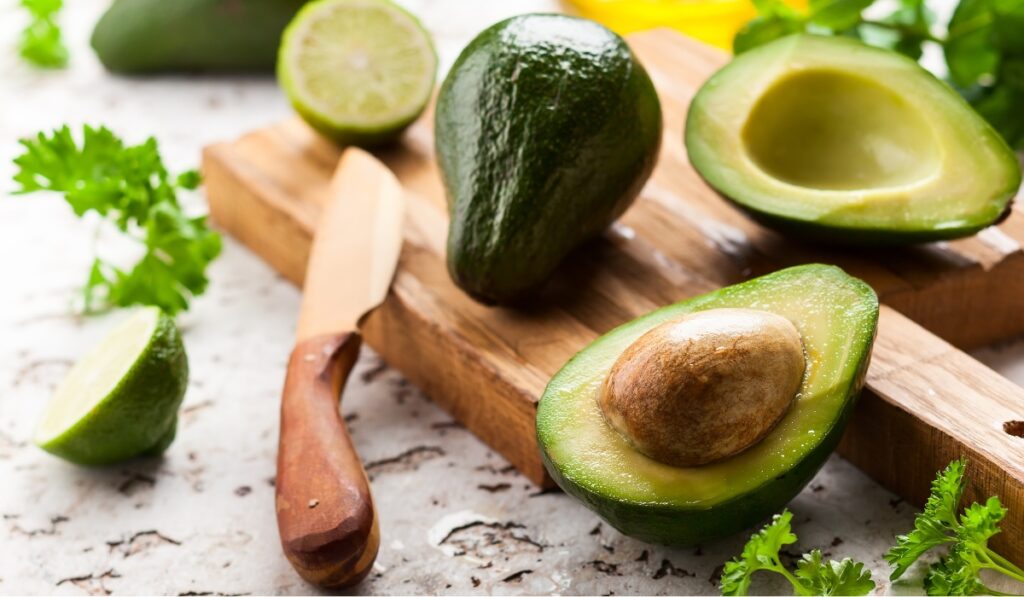Avocados are a highly nutritious fruit that is enjoyed by people all over the world. They are rich in vitamins, minerals, and other essential nutrients that are essential for our health and well-being. In this article, we will be exploring the vitamins and trace elements present in avocados and the benefits they provide to our bodies.
Table of Contents
From vitamins C and B6 to riboflavin and potassium, avocados are a powerhouse of nutrients that are essential for our health. Whether you are a health enthusiast or simply looking to add some variety to your diet, this article will provide you with a comprehensive guide to the vitamins and trace elements present in avocados. So, let’s dive in and learn more about this amazing fruit!
Avocado Composition
According to the National Center for Biotechnology Information (NCBI), by weight, the avocado fruit contains the following: Nutrients/phytochemicals, minerals, vitamins and lipids. The tables below show the nutrient content of avocados:
Nutrients/Phytochemicals
| Nutrient/Phytochemical | 100 g | 1 Avocado (136 g) | 1/2 Avocado (68 g) |
|---|---|---|---|
| Energy Value | 167 Kcal | 227 Kcal | 114 Kcal |
| Protein | 1.96 g | 2.67 g | 1.34 g |
| Total Fat | 15.4 g | 21 g | 10.5 g |
| Fiber | 6.8 g | 9.2 g | 4.6 g |
| Sugar | 0.3 g | 0.41 g | 0.21 g |
| Starch | 0.11 g | 0.15 g | 0.08 g |
Minerals
| Mineral | 100 g | 1 Avocado (136 g) | 1/2 Avocado (68 g) |
|---|---|---|---|
| Calcium | 13 mg | 18 mg | 9 mg |
| Iron | 0.61 mg | 0.83 mg | 0.42 mg |
| Magnesium | 29 mg | 39 mg | 19.5 mg |
| Phosphorus | 54 mg | 73 mg | 36.5 mg |
| Potassium | 507 mg | 690 mg | 345 mg |
| Sodium | 8 mg | 11 mg | 5.5 mg |
| Manganese | 0.15 mg | 0.20 mg | 0.10 mg |
| Copper | 0.17 mg | 0.23 mg | 0.12 mg |
| Zinc | 0.68 mg | 0.92 mg | 0.46 mg |
Vitamins
| Nutrients/Phytochemicals | 100 g | 1 Avocado (136 g) | 1/2 Avocado (68 g) |
|---|---|---|---|
| Vitamin C | 8.8 mg | 12 mg | 6 mg |
| Vitamin B6 | 0.29 mg | 0.39 mg | 0.19 mg |
| Beta-Carotene | 0.7 mg | 1 mg | 0.5 mg |
| Folic Acid | 89 μg | 121 μg | 60.5 μg |
| Vitamin A | 7 μg | 10 μg | 5 μg |
| Riboflavin | 0.14 mg | 0.19 mg | 0.09 mg |
| Beta-Carotene | 63 μg | 86 μg | 43 μg |
| Alpha-Carotene | 24 μg | 33 μg | 16.5 μg |
| Vitamin E | 1.97 mg | 2.68 mg | 1.34 mg |
| Vitamin K1 | 21 μg | 28.6 μg | 14.3 μg |
GI (Protein-Fat-Carbohydrates) Table
100 grams of avocado contains:
| Nutrient Content | Per 100g of Avocado |
|---|---|
| Proteins | From 14.66 g |
| Fats | From 1.95 g |
| Carbohydrates | From 8 g |
A source of potassium and nutrients
Avocados are an excellent source of potassium. One such fruit contains about 4.7 grams of this substance. The same amount of potassium a person would get from eating two small bananas. The avocado is also rich in fat, folic acid, useful for pregnant women, and nutrients such as vitamin C, vitamin K, vitamin B, vitamin E, and vitamin A.
Source of “good fats”
Avocado oil alone contains about two thirds (about 70 percent) of monounsaturated fatty acids, or so-called “good fats,” which, according to the Dairy Council of California, can lower bad cholesterol levels (LDL) by up to 20 percent and raise the “good” ones by 1 percent. It also has a generally positive effect on metabolic processes and even helps to fight cancer cells.
A source of fiber and dietary fiber
Fiber is a non-digestible plant substance that helps fight extra pounds. There are two types of fiber:
- Insoluble fiber. It is not digested by the human body.
- Soluble fiber. Is digested by the human body. Reduces fat absorption, helps regulate weight, and nourishes intestinal bacteria responsible for optimal body function.
There are 7 grams of fiber in 100 grams of avocado. Of that, 25% is healthy soluble fiber.
According to Salifornia Avocados, avocados are a good source of dietary fiber, which helps reduce the risk of cardiovascular disease, type 2 diabetes and obesity.
A source of antioxidants
Antioxidants are substances that help protect cells from damage caused by free radicals, which are unstable molecules that can harm cells and contribute to the development of diseases such as cancer and heart disease. Avocados contain several antioxidants, including carotenoids such as lutein and zeaxanthin, and polyphenols such as oleic acid and vitamin E. Additionally, the healthy fats in avocados help the body absorb these antioxidants and make them more effective. By incorporating avocados into your diet, you can help protect your cells and maintain good health.
A source of an aphrodisiac
An aphrodisiac is a substance that stimulates and enhances libido as well as sexual activity. Avocado pulp contains substances, including Vitamin B6, which improve the production of sex hormones in both men and women.
Phytochemicals with anti-carcinogenic properties
Avocados contain bioactive phytochemicals such as carotenoids, terpenoids, phenols, glutathione and so on that can reduce the risks of throat, pharynx and oral cancer. In addition, avocados are rich in xanthophyll. This substance can fight the so-called Helicobacter, which causes gastritis, which can later lead to stomach cancer. And carotenoids and lutein have a beneficial effect on the mammary glands in women, reducing the risk of developing cancer.
Most fruits and vegetables are very low in fat. Avocados, a fruit, not a vegetable, are the exception, and some people avoid them for this reason because they are considered” conducive to fullness. Here’s what you need to know:






